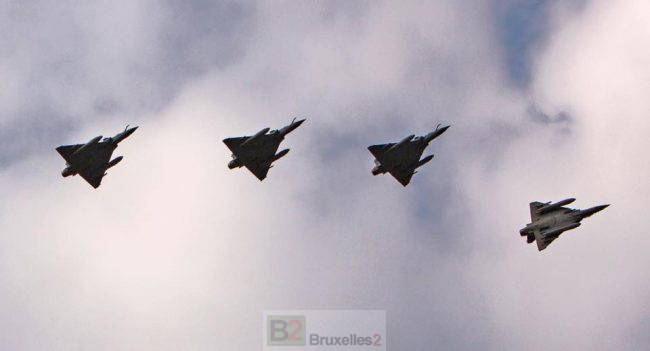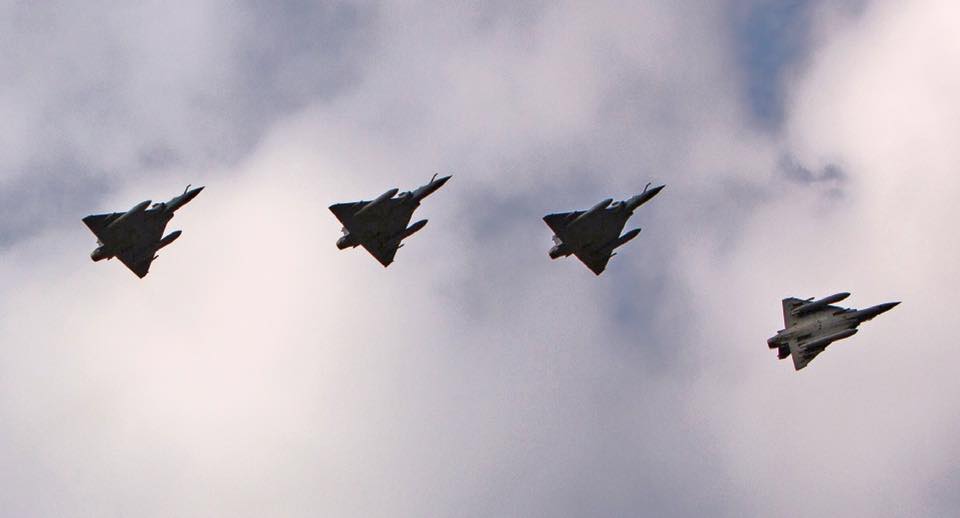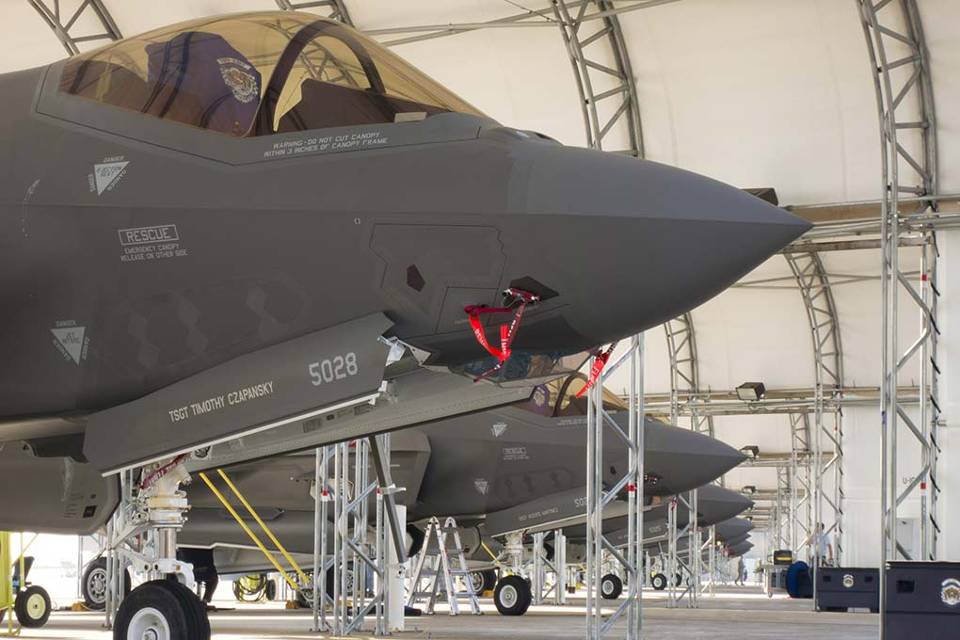The Ten Myths That Mitigate European Defense

(BRUSSELS2) The debate on European defense is today poisoned by a few myths, illusions, sometimes nice, sometimes petty, which are handicapping on the level of action as well as reflection. Fueled equally by gentle dreamers (who project their fantasies onto realities) and sovereignists (just as dreamy, but more dangerous), these remarks deserve to be put a little in the context of the principle of reality.
1st myth: "aaah if we had created the European Defense Community" (the nostalgic)
It was in 1954, more than 60 years ago, three generations ago. At the time, Algeria was (still) French. Stalin had just died. Germany was still occupied and its army banned from existence. The Berlin Wall was not yet built. And the French and British hadn't gone to Suez, etc. Trying to revive an idea that was conceived in a specific political context, with a lament like 'aaah if we did the CED, we wouldn't have this type of problem' comes from sweet nostalgia (1).
Meanwhile, the decolonization movement has reduced the French and British colonies (Belgian and Dutch) to a few crumbs of empire, globalization is slowly seeing the birth of new giants (China, Korea, India, Brazil...) which can now hold the dragee high in industrial material to the Europeans. New threats have emerged. The situation is not at all the same.
Saying today that this failure harms any other initiative is Attila's syndrome (the grass will never grow back). Curtain on the EDC which belongs to history like the Fourth Republic to that of France.
2nd myth: "My national defense, very effective" (the pipe smoker)
Faced with a resurgence of the Russian will to show its muscles, it is symptomatic that the Europeans have been unable to organize reassurance measures towards the most exposed States strong enough to be dissuasive. We had to wait for Washington's impetus, its commitment, for the Europeans to decide, a little, to act. Europe is like this adult who takes root in the parents' home, reluctant to leave it because lodging and food are provided, at a lower cost...
The reality today is that, more than 25 years after the fall of the Berlin Wall, Europe has become dependent on American drips. Most of the armies in Europe today are "paper tigers" which are no longer able to react to threats, even of medium intensity, which would strike their own territory. A triple scissor-cut is now threatening the sovereignty of European states: 1°) an increase in threats; 2) a weakening of capacities and budgets (even if there is an increase in budgets, this remains limited and unable to compensate for the slow erasure of almost ten years); 3°) the weakness of the research & development effort. Clearly, most countries are incapable of assuming their defense alone. The absence of significant investment, of independent national and European R&D, the principle of national preference and, failing that, American preference (without introducing European preference) mean that European industry does not have sufficient incentive to develop (except through exports outside Europe) (3).
3rd myth: "the French army, the best in Europe" (the doped runner)
This is a feeling very clearly expressed today in France. Admittedly, the French army has a notable capacity, an effective chain of command and an effect of size that few countries bring together. His successes are envied. But the patriotic, useful fiber obscures the reality today. France today seems deluded, bewitched by its "victories" in the Sahel or the Central African Republic, as the United Kingdom was yesterday. We are closer to doping than long-distance running. The French army is at the end of its capacities. And even if we increase its capacities a little, it is the public budget that cannot support, on its own, an intense effort over such a long period.
The United Kingdom had experienced similar euphoria, from 2003 with a sustained commitment in Iraq and Afghanistan. This effort lasted ten years and left the British army in the lurch, unable to cope with the accelerated renewal of materials, ammunition, equipment and... human losses. The Crown budget could not support this effort. And, the British army, is today handicapped, unable to project itself at a consequent height, as in the past, with a feeling of bitterness and lost greatness. France could experience such a misfortune by the end of the decade.
4th myth: make the European army (the impotent ambitious)
Taking advantage of the weaknesses of certain armies, the idea sometimes put forward is a European army project. This idea often comes up also among some (politicians, observers) who are unable to translate the project of strengthening European defense, of pooling resources, in any other way. As if there could be no other project, as if strategic thought were so completely annihilated that there is no other possible project at European level than the European army.
However, assuming that it is not just a 'good word' but a real project, the creation of a European army requires an enormous political, military, technical, ... and financial commitment. It would thus presuppose significant investments before reaping the fruits of budgetary savings. This is not really possible today, for two main reasons. There is no strong, legitimate European power, capable of assuming, politically and financially, a military commitment with its human losses, its possible errors, its pitfalls and which can account for its errors. There is no European people. There is no European budget. There is no will in most countries to consent to new shifts in sovereignty at European level. Etc.
Behind this assertion, there is sometimes good faith — setting a distant objective and putting in place the technical tools to achieve it — but more often there are a few innuendoes: 1) the European army is so unrealistic, we didn't manage to do it in 1954, we can't do anything in European matters... 2) a European army is an intergovernmental project thus making it possible to tell the European institutions that they are outdated and must do something else.
5th myth: let's be realistic, let's be pragmatic (the lotto player)
It is the opposite of the European army. It is the method of small steps, concrete cooperation, bottom-up projects, exchange of skills, good practices, etc. But it did not produce significant results. In fact, these words often hide a lack of political will. And when it exists, it only lasts one spring. Even those who have tried this method in good faith recognize this. In terms of defence, a significant and intense political will is needed, coming from the highest level of each State - sometimes with the agreement of parliaments and army commands - in order to be able to apply it down to the bottom, with a concrete objective , structuring, and quick to achieve an effect. But defense is not a grocery store. And a colonel does not command a general.
6th myth: the 'headlines goal' (the illusionist)
Everyone forgot it. But 15 years ago, in Helsinki, the Europeans defined several very generous objectives, headline goal. The Fifteen at the time undertook to be able to " deploy military forces of the order "of an army corps - up to 15 brigades, i.e. 50 to 000 men - in order to be able to carry out all of the Petersberg missions, that is to say in particular combat, interposition and peacekeeping missions. In other words, a lure at European time. For Mali in 2013, then for the Central African Republic... we couldn't find the necessary helicopters and soldiers. It took the Chadians in one case, the Georgians in the other, to complete the workforce which was barely 10% of the objective in the first case, 1 or 2% in the second case. Despite all the rhetoric and all the commitments, there is still no will to jointly plan the necessary capabilities, the types of equipment, and finally to fill the gaps jointly. This work, which continues to occupy some staffs, is useless work and a dangerous lure of power.
7th myth: the duplication with NATO (the flautist)
It is an agitated spectrum each time a European project emerges, whether realistic or ambitious. The duplication with NATO is one of his old stupid recurring myths. It is not because the Europeans have not succeeded in federating within themselves an idea of defense that NATO is doing better. On the contrary...
The debate today is no longer whether we need a Europe of defense or a European defence, one synonymous with the autonomy of the European Union, the other synonymous with a European pillar within of NATO. Or if one will weaken the other. The reality is that if you don't do one, you don't do the other.
The reality is that organizations, structures, political chains of command are different and are not interchangeable. They cannot be duplicated because they are not duplicable. Certain missions, NATO cannot (or does not want) to assume them (because its shadow in certain regions is not desired) or ensure them (because it does not have the means).
The reality is that today the sometimes inflated NATO-EU antagonism seems to be a thing of the past. " Contrary to other times, we no longer oppose European defense to NATO defence. And on the NATO side, there is recognition of the progress and development made by the EU in the field of security and defense » underlined recently in Paris in front of the ambassadors, General de Rousiers (former president of the military committee of the EU). " It was very visible at the top of Wales. where there were 70 occurrences of the word 'European Union' in the text. An optically unprecedented situation. »
8th myth: without the United Kingdom, we can do nothing? (the bagpipe player)
It's wrong. To claim the contrary is to confuse the real British weight, at the military level, with its concrete contribution to European operations. But we shouldn't harbor any illusions. When Dutch Minister Bert Koenders regrets the loss of expeditionary capability, particularly of the British fleet With Brexit, it's more like crocodile tears. Most European military operations have so far done without British armies. Even the anti-piracy operation in the Indian Ocean, although commanded by a Briton, received only limited support from the Royal Navy in terms of ships (Read: Brexit. Is the British necessary for European defense?). Only the Sophia operation in the Mediterranean today has a British ship in its ranks, without this presence being as fundamental as the Italian or German contribution to the operation.
Moreover, even outside the European Union, it is always possible to involve the British in European defense operations and projects, on an ad hoc basis, as is done today for all third countries. Australia, Russia and Ukraine came to lend a hand to the EU yesterday. The United States, Switzerland, Georgia or Turkey continue to do so. Why not Her Royal Majesty's troops tomorrow?
9th myth: we decide everything unanimously (the hardened legalist)
A nice apology. In fact, defense benefits, at European level, from the most flexible and comprehensive framework possible in terms of "à la carte" actions. This is also the only area to benefit from such preferential treatment. It is possible to act in 2 or 3 (or more) cooperation, for example ad hoc on an operation (delegation of action article 44), to have cooperation in several on one or two themes (enhanced cooperation), to to have stronger cooperation with a permanent structure (permanent structured cooperation), to set up a fund for the missions (Launch Fund) (2). Moreover, it is always possible to have recourse to an initiative outside the treaty, as we have done regularly — whether for OCCAR or the EATC —.
None of these frameworks has ever been triggered by a Member State. Several countries (Germany, France, Spain, Belgium, etc.) have spoken about it, intentionally, in programmatic documents (White Paper type) or political speeches. Today, the state that wants to can press the button, request the triggering of “structured” or “reinforced” cooperation.
In the same way, the High Representative of the EU, if she so wishes tomorrow, can reorganize the functioning of her services to create a command for the conduct of military operations. It will be a bit of a coup, the path is narrow, but it is possible.
10th myth: defense is at 27 or 26 (the hypocritical solidarity)
It is possible, but very difficult, if not very often impossible. Reality — and the experience of recent years — obliges us to recognize this. Defense projects integrate political and technical data so intensely that it is difficult to bring all the countries together on the same line, at the same time. If we want to move forward, quickly, or even move forward at all, the Europe of defense must be combined in the plural and can be broken down into small groups, according to territorial and political logics - Belgians with the Dutch, Nordics together, Visegrad, Central Europe, Balkan, Mediterranean — accompanied by logics of joint forces, complementary, integrated, operational. It is not a question of reconstituting multinational forces, available on paper and which only very rarely manage to function, but of leading to rapprochements which immediately translate into an increase in available forces and a reduction in costs.
(Nicolas Gros-Verheyde)
Read also:
(1) The CED project, attractive 70 years later, was at least not really well put together. When we look at the elaboration of this text, which borrows more from the situation of the moment than from a structural reality, and the content of the text with regard to the time, we can only indeed have doubts. A 'European' army under the command of an American soldier... it was not really enough to get this project approved. I'm not really sure that he could have resisted the various subsequent military initiatives, in particular the operations in Algeria...
(2) We can add other mechanisms such as that of the European Defense Agency which has developed the B projects (where each country decides to participate... and to contribute financially). Other projects could be launched and funded as widely as possible.
(3) Which, by the way, represents a double anachrony. European states prefer to buy outside Europe rather than on the continent. Instead of exporting values, Europe exports arms.
(*) Denmark does not participate in the development of military policy at European level.


The problem of France is not in its army but in its elected officials, unable to match means, whether human or material, and assigned missions. “A Leader, a Mission, Means”! As long as we free ourselves from this adage and refuse to understand that we have to adapt our missions to our means and not play the illusionist, we will run the risk of finding ourselves bloodless one day. That day is very near.